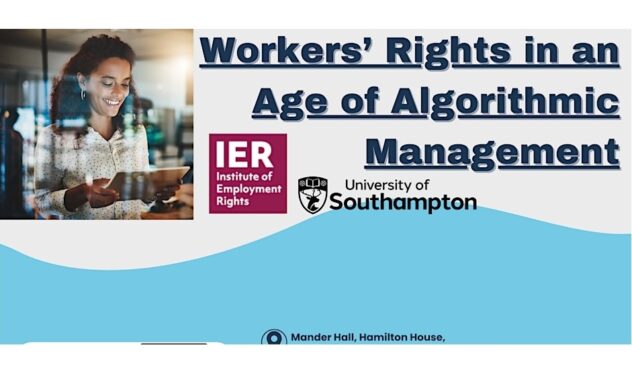Employment practices and data protection – information about workers’ health
TUC response to ICO consultation and data protection

From the TUC:
We welcome the opportunity to respond to the Information Commissioner’s Office (ICO) consultation on employment practices and data protection regarding information about workers’ health.
We agree with the ICO that health information is some of the most sensitive personal information that might be processed about workers. An online resource with topic-specific guidance on employment practices and data protection could be vital to workers, employers, trade unions and trade union representatives.
But the draft guidance in its current form would not adequately support all the groups who might seek to use it. Despite the ICO’s role ‘to uphold information rights in the public interest’[1] the employer-focused framing and language; the lack of detail on the ethical principles involved when making complex decisions about workers’ health data, and the omission of information about the benefits of involving trade union representatives and activities, such as meaningful dialogue, consultation and collective bargaining and just some of the problems outlined in our consultation response below.
To ensure the final guidance on employment practices and data protection regarding information about workers’ health is a document that helps the ICO to uphold information rights in the public interest, the TUC calls for the ICO to:
i) Change the framing and language to make it just as applicable to workers as it is to employers. The guidance does well to talk about the power dynamics inherent in any employer relationship. This needs to go further. Change the framing so that it is more in line with employers upholding their duty of care to employees and treating their health data according to this duty of care.
ii) Talk about unions. Collective bargaining provides an excellent framework for involving workers in meaningful consultation about how their data is used.[2] Of those not covered by an agreement, there may still be an active branch in the workplace, including a health and safety rep that can facilitate negotiation and help workers make empowered decisions.
iii) Consider that readers will be engaging with the guidance with limited time. Allow for better navigation through the document. Consider repeating items for reiteration and to avoid readers missing key points. Cite all relevant legislation you mention. Provide links to this.
iv) Make more specific reference to equalities groups, who already experience barriers in when accessing their rights, including in the workplace like employment, human and data-related rights. One example of an employer using data and employment practices positively would be the inclusion of ethnic data monitoring in accident records, to allow sickness and accident reporting to show any patterns of discrimination in the workplace which could then be addressed by the employer.
v) Explain the legislative landscape more fully. There does not appear to be full and complete guidance on how common law currently affects the sharing and processing of workers’ health data. Nor does the guidance mention relevant health and safety legalisation. The key point to note is employers have a legal duty to consult with staff on issues affecting their health and safety and this will play in to actions affecting their health data. The guidance must explain this.
[1] ICC (2023) What we do [online] Accessed 31st January 2023 Available at: https://ico.org.uk/about-the-ico/what-we-do/
[2] TUC (2019) A stronger voice for workers: How collective bargaining can deliver a better deal at work [online] Accessed 31st January 2023 Available at: https://www.tuc.org.uk/research-analysis/reports/stronger-voice-workers







